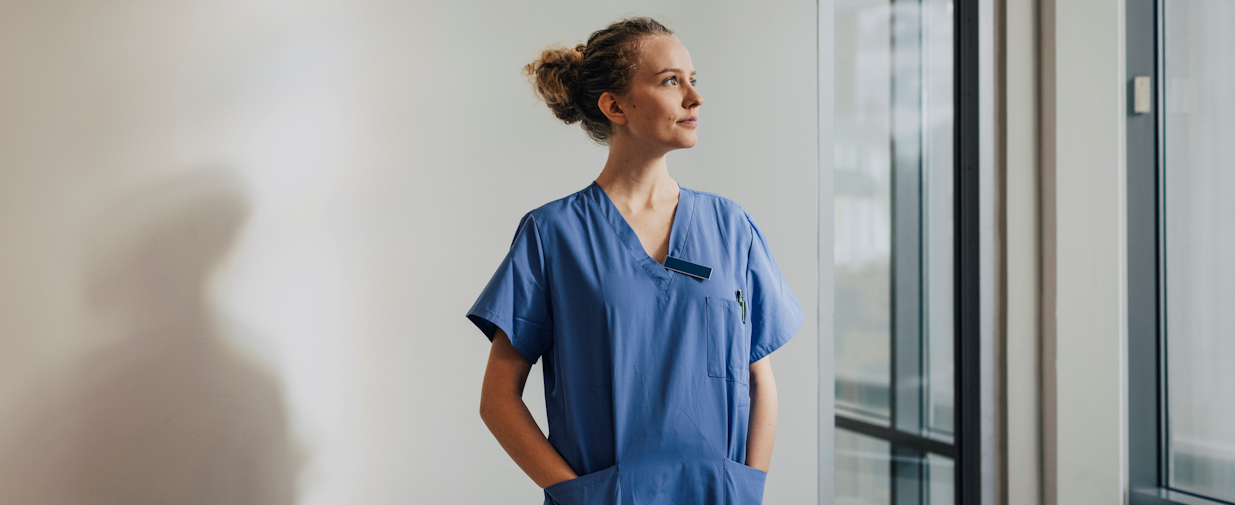Change your business address
If you're a full access user, you can update your business, registered, mailing and personal addresses within Online for Business and the Business banking app.
Read time: 4 mins Added date: 17/01/2025
James Gransby, a Partner at Azets accountants and business advisory group who has worked with doctors and GP practices for over two decades, considers the pros and cons of becoming a partner in your practice.

Looking at media reports, it’s clear that GP partners are feeling squeezed.
Complaints about inadequate funding settlements, deteriorating work conditions and concerns over patient safety have dominated the agenda for some time.
Most recently, changes to employers’ contributions to National Insurance and the increase in the National Living Wage have been generating panicked headlines, with claims some practices could even become unviable.
The Healthcare Confidence Index provides valuable insights into the healthcare sector during a period marked by falling interest rates and inflation, even as global economic uncertainty continues to rise.
GP sentiment saw a strong rebound, rising 20 points, with over a third now forecasting growth. However, challenges remain, including staffing pressures, NHS contract changes, and 80% of GPs saying they never want to be a partner.
Of course, money isn’t everything, and being a partner comes with significantly more responsibility than a salaried GP. But it does raise the question; is becoming a GP practice partner still a good career move – and why?
First, let’s look at the factors driving the drop off in GP partners.
A couple of years ago, one key sticking point was pensions; specifically, GPs facing the prospect of big tax bills for exceeding the Annual Allowance on pension contributions. But this was partially resolved when the Annual Allowance was increased from £40,000 to £60,000 in 2023.
This has been replaced by another problem. Though the ‘global sum’ paid to practices – which is based on the size of a practice’s patient list and generally makes up the majority of its income – has gradually been increased, in real terms it has fallen because inflation has been so high.
This means that the difference between what a salaried GP and a partner GP earns is shrinking, so there is less of a financial incentive to become a partner.
Partners have been quite vocal about this, as well as the pressures of work they face, which would no doubt be off-putting for would be partners. And in a funding constrained environment, partners will think carefully before admitting new partners to their partnership, because profit will be spread more thinly as a result, leading to a dilution in the profit per partner session for existing partners.
This comes at a time when the average GP partner’s real terms income continues to decline, reflecting the passing of the pandemic, during which their incomes rose as a result of their increased activity.
But does all of this mean becoming a GP partner is no longer a good career move? I don’t think so, especially if you have an entrepreneurial outlook.
In fact, potential partners need to look beyond the annual income that the job provides. For example, some practices effectively own their premises and are paid rent by the NHS.
Many new partners take out loans to buy into the property, but as interest rates have increased in recent years, they often find that rent increases haven’t kept up with their growing loan repayments. But don’t forget, you are paying off the capital as well as the interest – converting cash into bricks and mortar.
History shows us that the value of property will increase over a long enough time horizon. And a potential upside for any partners buying in December 2024 is that interest rates could fall over that period of ownership. So, buying into a practice premises can still be a sound long-term investment.
At the same time, changes to the way grants are awarded to practices for improvements to premises can also play into partners’ hands. Grants to help practices build extensions, rebuild or build new premises used to be capped at 66% of the cost, but this has now been increased to 100% - though any project must first be approved by a Commissioner, who will consider whether it fits with the Local Estates Strategy.
During the period when grants are being clawed back, partners aren’t paid rent for the new element of the premises for a number of years. The clawback length being determined by the total amount borrowed, after which partners are paid a higher rent reflecting the inflated premises value.
Still, that should be particularly attractive for GPs with a longer term horizon, who can invest in their property asset at a low cost. So, there remain many advantages to becoming a GP partner, but you should have your eyes wide open when entering into such an arrangement.
After all, a good partner needs to not only be a good clinician, but also an entrepreneur.
That means considering whether the session rate you will achieve represents a fair uplift, given extra costs you incur as a partner, and whether you will join at 100% parity from the beginning; some practices ask new partners to come in at an initial 75%, for example, which then increases over time.
And it’s worth exploring to what extent investigating whether the practice provides locally commissioned services and other income sources outside of the NHS, which means extra work, but also extra funding.
The advice of a specialist accountant will enable you to accurately assess the finances of the practice. But, as with any career decision, it isn't all about the money; a period of mutual assessment between the partnership and the prospective partner is always a good plan to see if there is a good cultural fit. Because being a GP partner isn’t just a financial opportunity, it’s a chance to make a positive contribution to your community and be part of the future of general practice.